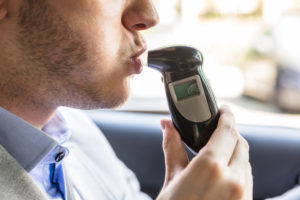
If you find yourself in a position where you may be compelled to take a breathalyzer test, you should absolutely take some time to contact a lawyer and ask about your options before taking the breathalyzer. They’ll walk you through the potential risks and benefits of refusing or taking the test, and they can explain what’s next if you blow over the legal limit. However, failing a breathalyzer test doesn’t always mean that you actually had a BAC above 0.08. In today’s blog, we take a closer look at three common reasons why you may register a false positive on your breathalyzer test.
Reasons For Inaccurate Breathalyzer Tests
Here’s a look at three ways a good defense lawyer may attempt to challenge the validity of your breathalyzer test if we suspect that it could have registered a false positive reading.
1. Improper Calibration – If you’re a hunter, you know how important it is to clean your gun and sight your scope at regular intervals so that it works properly when you need it to. A breathalyzer functions in a similar way. Officers need to regularly calibrate their devices and have them serviced to ensure they are still providing accurate readings. These calibrations are required to be documented, and if there is no clear log or it hasn’t been serviced when necessary, the results of the false positive test can be dismissed.
2. Tested Too Soon – If there is residual alcohol in a person’s mouth when they take the test, it can greatly throw off the true accuracy of the reading. That’s why police officers are required to wait no less than 15 minutes before testing a person suspected of driving under the influence of alcohol. If they test you right after watching you drive away from a bar, or within 15 minutes of witnessing you consume alcohol, they test results could be invalidated.
3. Heartburn – Finally, if you’ve been diagnosed with certain health conditions, there’s a distinct possibility that it could affect the accuracy of your breathalyzer test. Heartburn, acid reflux and gastroesophageal reflux disease can all lead to alcohol coming back up into the esophageal canal, and this can throw off a breathalyzer reading. Having one of these conditions is by no means a “Get Out Of DUI Free” card, but it can throw your results into question if you were right around the 0.08 limit.
These aren’t the only ways we’ll challenge your breathalyzer test results, but they are all challenges we’ve successfully made in the past. For more information or for help with your DUI case, reach out to Avery and the team at Appelman Law Firm today.





